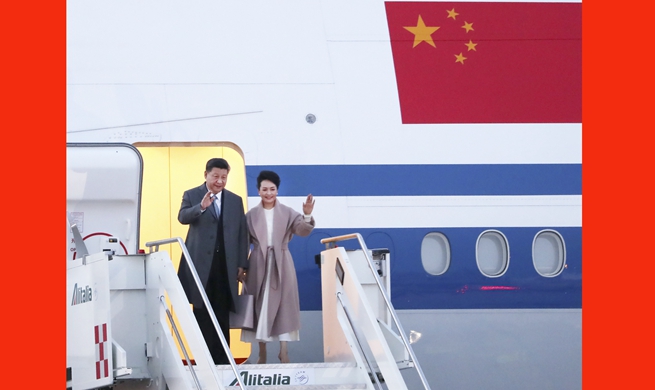SAN FRANCISCO, March 21 (Xinhua) -- The two air crashes involving the same Boeing 737 Max model in a span of five months revealed some problems with the industry regulation as well as pilot training, said an aviation expert Thursday.
"I believe this is the fundamental root cause of these accidents -- inadequate regulation and oversight to counter financial incentives (of the airline industry)," Douglas Moss, an aviation safety and security expert at University of South California, told Xinhua in an interview.
An Ethiopian Airlines Flight crashed on March 10, killing 189 people onboard. Last October, an Indonesian Lion Air Flight went down in Jakarta, killing 157 people.
Both crashes showed some similarities -- both ill-fated aircraft are Boeing 737 Max which crashed shortly after takeoff.
The Chicago, Illinois-headquartered Boeing Company, has since been put under spotlight and potential legal liability has been widely discussed, even though an investigation is still underway.
The U.S. Federal Aviation Administration (FAA) is mandated to guarantee airline safety via a certification process. But under its Organization Designation Authorization (ODA) program, the FAA delegates to the manufacturer certain aspects of certifying the airplane -- making sure that the airplane design meets all the FAA requirements, according to Moss.
"There is evidence that Boeing failed to fulfill its duties under the ODA," said Moss, also a pilot and owner of AeroPacific Consulting, a Reno, Nevada-based firm providing aviation-related expert witness and accident investigation services.
"They (Boeing) take their responsibilities for safety seriously," said Moss, who worked with and for Boeing for many years.
But the financial risks and incentives for both manufacturers and operators are so large that they sometimes sway corporate judgement, he said.
"The company may make a corporate decision that undermines safety and there isn't enough governmental oversight or manpower to correct the issue," Moss explained.
He added the pilot training at airlines is "woefully inadequate."
"The 737 MAX pilots at American Airlines were given only a 56-minute iPad presentation to convey all the differences between the 737 MAX and its cousins," he said. "Certainly that is not enough to ensure that the pilots are now competent to fly this new plane with all the new changes incorporated into it."
"During the FAA-approved training I received at my airlines, we practiced only about 2 percent of the possible failures that one could experience when flying the plane," said Moss. "We only trained one failure at a time and were not exposed to multiple failures."
In fact, most of the simulator time was devoted to administrative or rudimentary procedures instead of practicing how to handle emergencies, said Moss.
"In my opinion, airline pilot training should be much more intensive and robust -- to ensure that pilots are ready to handle almost any emergency," he said.
Another example he gave is the "poor documentation" that airlines give their pilots.
In the Lion Air accident, the pilots reportedly spent several minutes trying to find the right procedure in their emergency handbook to address their flight control problem.
"In my experience, the document writers at airlines are not pilots or human factors experts, and they follow mostly only rigid rules of format, with no concept of how the procedure will be used in the cockpit," said Moss.
"Hopefully all these will change for the better after these accidents," he said.













